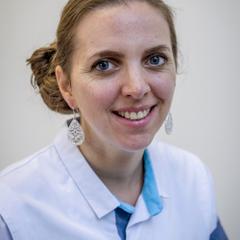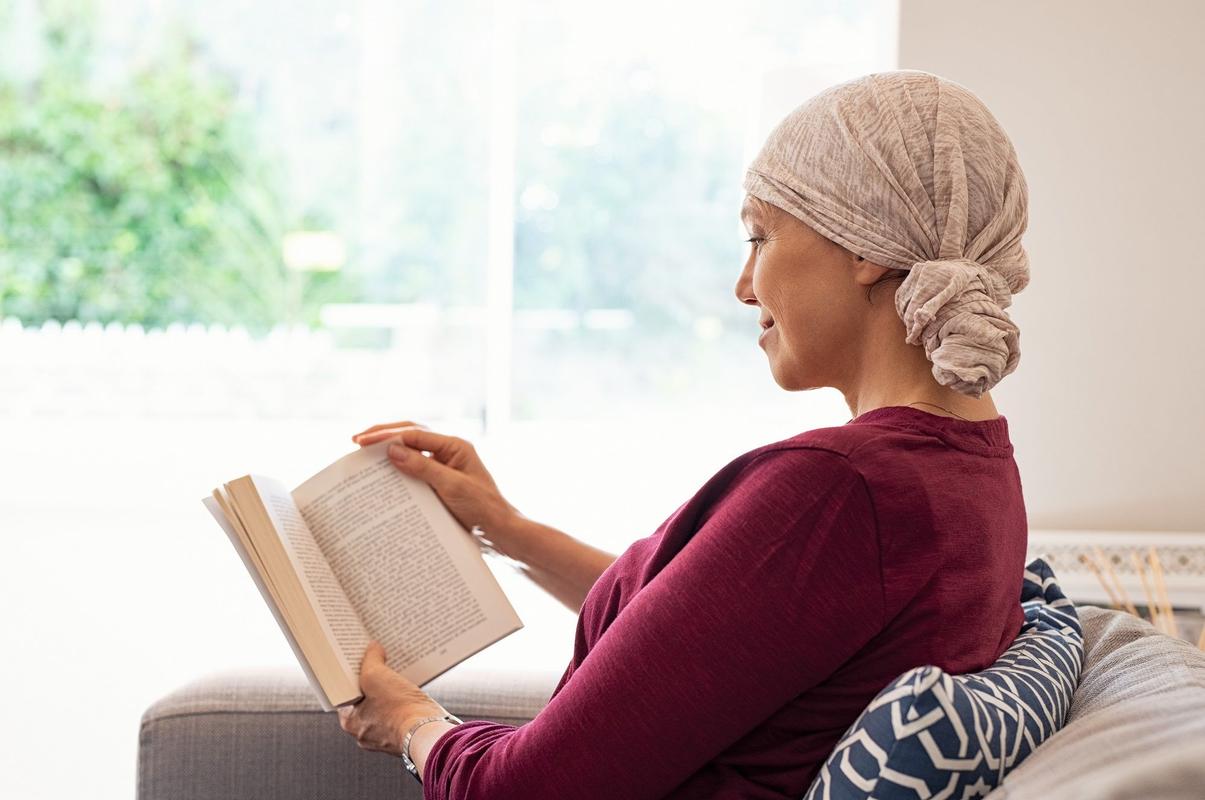This pilot project was a federal government initiative. Various hospitals were asked to cooperate, but each could work out the project as they saw fit. UZ Leuven worked together with the White-Yellow Cross for Vlaams-Brabant and the GP association Kring huisartsen Oost- Brabant (Khobra).
Dr. Kevin Punie, general medical oncology: “Up until now, oncological treatment always took place in the hospital. It is a big step for doctors and nurses to hand over administration of the treatment. For this project we specifically chose one type of subcutaneously injected treatment with relatively few side effects. Start-up of the treatment, and the first couple of administrations took place in the hospital. In addition, there was regular follow-up of the patients by the oncological care providers in the hospital.”
It is a big step for doctors and nurses to hand over the administration of an oncological treatment. Dr. Kevin Punie
Dr. Kevin Punie
Specific training
Nurse of the White-Yellow Cross from all over Flanders were given training about the treatment. In the meantime they were able to gain some experience. Patients were not obliged to choose the White-Yellow Cross.
Annemarie Coolbrandt, nursing specialist oncology: “Every patient is free to appoint a GP or another home nurse for administering the treatment. We do however see that a lot of people feel more comfortable with a care provider who has specifically been trained for the treatment.”
The fact that patients don't have to come to the hospital that often, is more practical and makes for a less-intensive experience of the treatment. Annemarie Coolbrandt
Annemarie Coolbrandt
Better for patients and care providers
Three years after the start of the projects, UZ Leuven has concluded that the project turned out to be successful, both for patients and care providers.
“The fact that patients only have to come to the hospital once, instead of four times, makes a big difference for how the illness will be experienced. The treatment feels less intensive and practically this method is also handier. Patients loose a lot less time”, Annemarie says.
A patient that participated to the project adds: “After months of going to and fro the hospital, is was a real relief to be able to receive my after-treatment at home. Without the rush of the hospital, but with the calm of home. This was a reall bonus for my recovery process.”
Future plans
For the future the first thing on the planning is the further elaboration of the training for first line care providers. Annemarie: “In addition we want to keep working on quality control and good electronic data-sharing between the hospital and the first line.”
After this pilot project, the government will hopefully soon give the green light for this type of home treatment. “Until then, we can't let any new patients participate, but we hope to be able to continue as soon as possible with an definitive start. Because for breast cancer and other oncological disorders, there are more treatments that lend itself for home administration.”
